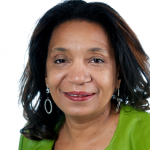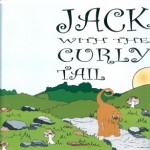About Michelle
Michelle Brown is an author, activist & public speaker who believes in common ground for all people.Appearances
Blogroll
-
Recent Posts
- My Interview with Wyatt O’Brian Evans
- The Bayard Rustin Center for Social Justice welcomes Michelle Elizabeth Brown to the BRCSJ Board of Directors
- Ode to Kamala Harris/Our Vice President
- Updated poetry for TDOR 2020 (Monica on my mind)
- Living in the Shadow of COVID 3: Getting Back to Work, Because There’s SO Much Work to Do
Archives
Daily Archives: August 11, 2011
Here’s to the death of power lists
Originally published on May 19, 2011.
The definition of insanity as “doing the same thing over and over again and expecting different results” is generally attributed to Albert Einstein. Regardless of who originally coined this adage, it continues to ring true today.
We live in an insane world where decisions, attitudes and even elections are influenced, even determined, by headlines, innuendos, trends of the moment and the loudest voice able to capture our short attention span. We don’t change, then wonder why things aren’t better.
We all, to some extent, are lured into following and/or defining ourselves, our movement, our lives by the usual bright shining lights. We find some level of acceptability, comfort, even progress by basking in the rays of this light rather than looking for a reality beyond current expectations.
I have been thinking about this lately, following some discussions around Out Magazine’s “Power 50” and “Hidden 105” lists, specifically at how we define power and the implied power associated with being on these lists.
I have to start by disclosing that I am on the “Hidden 105” list. I must admit being included on a list that includes Mandy Carter, Juan Battle, Hank Milbourne and Julie Nemecek compiled as an addendum, so to speak, to a list which included Barney Frank, Rachel Maddow and Jody Foster is pretty damn cool.
In this day and age of instant celebrity, news and communications, I wonder how are we defining power? When I looked at the initial “Power 50” I asked myself how this is “my power” as a member of the LGBT community?
Yes, we are visible. Gay characters pop up all over television and in the movies and more importantly gay actors are being cast in a variety of roles based solely on their talent and ability. We are not only in the news, but making news and policy as broadcasters and politicians. Unless you’ve been living under a rock or on hiatus to Mars you know we are here and queer whether you’re used to it or not.
But I’ve heard this tune before. My African American experience includes those early television shows where blacks went from serving the household to having households; where African American actors are in front of and behind the cameras, not limited to opportunities by the color of their skin. African Americans have also made their mark in politics. And even though no African Americans were elected to the U.S. Senate in the 2010 elections, the Congressional Black Caucus remains strong and an African American, Barack Obama, occupies the most important house in the land – the White House.
You might say, “we’ve come a long way baby,” but it’s hardly time to kick back and light up that Virginia Slim. It’s not time to pat ourselves on our backs, sing we’ve got the power, and throw our hands up in the air and wave them like we no longer have to care.
We don’t have the power, and more importantly, do we really know what power is?
In 2008, we ushered in the piper(s) to lure the political rats away. We felt we had the power, the momentum. But like the citizenry of Hamelin, once the possibility of change was within our grasp we’ve been unwilling to pay the piper. Assimilation has lulled us into a false sense of security and now the piper is coming for our children with a backlash of bias and false conservatism threatening to unravel our precious gains.
The accomplishments and visibility of the Power 50 in Out Magazine, even expanded to include the 105 people of color and transgender and ability activists, is not a game changer. We are still disempowered.
Even if you listed both Jody Foster and me as references on your resume, there is still no ENDA to protect your right to work as an openly gay person.
Knowing that the kid in the playground being bullied for his/her sexual orientation or gender expression might grow up to be Rachel Maddow will not ease the pain, nor will it provide the protection of strong anti-bullying legislation.
The war for marriage equality rages on in the states. The fight against DOMA and DADT still isn’t totally over.
Lists are nice, but please don’t congratulate me for having my name on anyone’s list. It’s just my 15 minutes of fame.
The only power list that matters is the one you won’t find published in any magazine. It’s strong, powerful and all-inclusive, regardless of race, creed, color, ethnicity, ability/disability, sexual orientation or gender expression.
It’s that unspoken list that denies us full equality as gay Americans, that says it’s OK to continue to persecute and even kill gays worldwide, and that tells little Johnny it’s OK to bully the Muslim/queer/person of color/disabled and others because power accepts him but excludes the others.
So let’s make a deal: no more lists. No more accepting crumbs so we can pretend to be powerful. No more worrying about who made the list or not. We’ve paid the piper, so let’s finish what we’ve started and tear down the power lists that have divided our community, denied us our rights and continue to threaten the world we must build for all of our children.
Reprinted from: http://www.pridesource.com/article.html?article=47129
Tagged Michelle Brown, Pride Source
Comments Off on Here’s to the death of power lists
Authors of Note: Michelle E. Brown, The Phenomenal Woman
Michelle E. Brown is a women’s/civil/gay rights activist who believes in helping the community. She’s a member of the Board of Directors of the National Black Justice Coalition (NBJC) a Washington, DC based civil rights organization dedicated to empowering Black LGBT people. She has received numerous accolades for work to help bring awareness and confront the problems of homelessness, affordable housing, and drug addiction. And she’s a champion for youth empowerment. Her writings have appeared in several Michigan newspapers including Between The Lines and she has written a children’s book. In 2008 she published “Wild Fruit In Open Spaces,’ a collection of poetry.
in helping the community. She’s a member of the Board of Directors of the National Black Justice Coalition (NBJC) a Washington, DC based civil rights organization dedicated to empowering Black LGBT people. She has received numerous accolades for work to help bring awareness and confront the problems of homelessness, affordable housing, and drug addiction. And she’s a champion for youth empowerment. Her writings have appeared in several Michigan newspapers including Between The Lines and she has written a children’s book. In 2008 she published “Wild Fruit In Open Spaces,’ a collection of poetry.
PrideIndex sat down with our new friend and colleague from Motown to talk about her life’s work and what’s next.
PRIDEINDEX:Why did you become an activist and why do you feel it is so important to become involved in the community?
Michelle E. Brown: I was inspired to become an activist by my community elders. At a time in my youth when I was adrift, I was taken under the wings by some elder African Americans, most of whom had migrated to the north from the south. They were engaged in voter registration, starting a citizen’s district council and cleaning up their blighted neighborhood. They challenged me to do more than sit on my butt, educating me on my history as an African American and basically telling me it was my responsibility to continue the work of those who had struggled, fought and died so I could enjoy the freedoms I was taking for granted.
PI: If you were not an activist what would you be?
MB: It is hard to imagine myself being anything other than an activist as it flows through all aspects of my life. Having said that, I guess I would be a modern day griot, writer and educator.
PI: I understand that you’re a published author, tell us more about your writings. And where can I pick up a copy of your books?
 MB: I am a published author, columnist and essayist. My writing is an extension of my passion for social justice. I have written two books. A children’s book “Jack with the Curly Tail” the first in a series. Using the primary character of Jack, a small dog, I touch on the subjects of self-identity, homelessness, friendship and family in a story designed to foster conversation between parent/teacher and child. Today’s youth are faced with these problems but often do not get an explanation or information where they can think critically and make better decisions (i.e. seeing beyond the stigma of homelessness). I have many wonderful opportunities to read this in public schools and engage youth not just in discussion but in writing projects of their own. (A sequel is planned for launch during National Reading Month – March 2012).
MB: I am a published author, columnist and essayist. My writing is an extension of my passion for social justice. I have written two books. A children’s book “Jack with the Curly Tail” the first in a series. Using the primary character of Jack, a small dog, I touch on the subjects of self-identity, homelessness, friendship and family in a story designed to foster conversation between parent/teacher and child. Today’s youth are faced with these problems but often do not get an explanation or information where they can think critically and make better decisions (i.e. seeing beyond the stigma of homelessness). I have many wonderful opportunities to read this in public schools and engage youth not just in discussion but in writing projects of their own. (A sequel is planned for launch during National Reading Month – March 2012).
The second book is a collection of prose and poetry titled “Wild Fruit Hidden in Open Spaces “is a reflection of the different “wild fruit” that connects us to our humanity (a person, love, feeling, etc.) that are not secrets but hidden in open spaces all around us if we just look.
Both books are available through Amazon.com or at my website www.michelleelizabethbrown.com.
 I am most known and have received awards for my Point of View columns mostly published in “Between the Lines” Newspaper (Michigan’s only publication for the LGBT community) www.pridesource.com and CherryGrrl www.cherrygrrl.com, an online publication focusing o the intersections of social Justice and LGBT equality. I have also had columns in The Detroit News and Michigan Citizen (mainstream Newspapers).
I am most known and have received awards for my Point of View columns mostly published in “Between the Lines” Newspaper (Michigan’s only publication for the LGBT community) www.pridesource.com and CherryGrrl www.cherrygrrl.com, an online publication focusing o the intersections of social Justice and LGBT equality. I have also had columns in The Detroit News and Michigan Citizen (mainstream Newspapers).
PI: Any influences and/or mentors?
MB: Wow, so many where to start. I think I have been strongly influence by working with James (deceased) and Grace Lee Boggs (now 95)–political/movement activists whose influence has impacted social justice, civil rights and politics since the 1940’s. Through them I met the late actor Ossie Davis whose stories of perseverance were incredible. Donna Payne, Assistant Director of Diversity at the Human Rights Campaign, who really helped me develop as an LGBT activist. Professor Sharon Howell at Oakland University who encouraged me to write. And of course the strong women in my family my grandmother, mother, aunt and godmother who never gave up on me but never let me rest on my laurels.
PI: What was it like for you to come out to your friends and family?
MB: Coming out to my friends and community has been interesting. I have always lived my life out in the open – all my trials and tribulations, successes and failures. I have always tried to be real and authentic believing that I should be judged on the content of my character not my gender, race or sexual orientation. No apologies. Classic example – while debating for marriage equality in Michigan, an audience member stood up and said she didn’t know about “all that gay stuff” but I had been in her neighborhood cleaning up vacant lots making it better for her neighborhood so she didn’t need to understand but supported it as the right thing to do.
My mother was wonderful. She loved me and became a surrogate mom to many of my gay friends. My sister basically did a don’t ask don’t tell until she prepared for her second marriage. I was supposed to be in it and was bringing a girlfriend so she figured it was time to talk about it with her kids and fiancé, and for her to come out as an ally.
I have an adult son who in his words is very proud of my activism and leadership. He is my best friend.
Now time for the other shoe to drop. My father and I had a very rocky relationship, punctuated by attempts to kill me because I was not the daughter he wanted. However in the two years after my mother died, before his death, and after the last attempt at taking my life we were able to reconcile.
PI: What advice would you offer to a young lady considering coming out?
MB: Put your big girl pants on sister because it’s going to be a rough road but you can do it. Be strong and proud of yourself and surround yourself with people that will support you. You be you. Don’t ask for acceptance or tolerance of being a lesbian. It’s you and if they don’t like it, it’s their loss.
PI: Last year you were involved in an LGBT Roundtable with Congressman Gary Peters of Michigan briefly tell us more about that event.
MB: The LGBT community endorsed and supported Congressman Peters. Too often we support a candidate during the election but after they are elected we do not hold them accountable and we do not let them know we have their back when they stand up for our issues. Congressman Peters has been very open to continuing the dialogue but has also reminded the community that we have a stake in issues beyond, ENDA, marriage equality, DADT, etc. We are part of the community at large and we meet with him not just to talk gay but talk about community as well – ie Healthcare reform, support for the auto industry, jobs, education.
PI: Have you ever considered running for public office? Why or why not?
MB: I have thought about running for office but probably would not. Once you are in office one can be restricted by the limitations of the office and the political process. There are things you want to or say you will do but can’t because of the structure of our current political system. I’d rather be on the outside, a provocateur, an agent for change.
PI: If President Obama were to call you up tomorrow and say, “Ms. Brown I need your advice, what are 3 things I can do to make life a little easier for the African-American community,” what would you tell him?
MB: Education, Education, Education. Our community is not ready to be a part of the global community because we lack the skills and training. More importantly there has been a systematic, intergenerational dumbing down of the African American community. It is not uncommon in urban and rural areas to find multiple generations under one roof all functionally illiterate. We need community schooling so we raise not just the child but the village.
PI: Hypothetically speaking 100 years from now a group of LGBT youth will be given a homework assignment to write a report on life’s work and accomplishments of the renowned gay and human rights activist Michelle E. Brown. What would you want the classroom to take away from that report?
MB: I would like them to take away from that report that Michelle E. Brown was a woman of purpose; who learned from and stood proudly on the shoulders of those who came before her; A person who did not succumb to adversity but overcame or learned from her challenges; Who believed, despite all the atrocities, in the promise of America and worked hard for full equality in this country and human rights around the world.
reprinted from Pride Index: http://www.prideindex.com/wpcms/?p=4068
